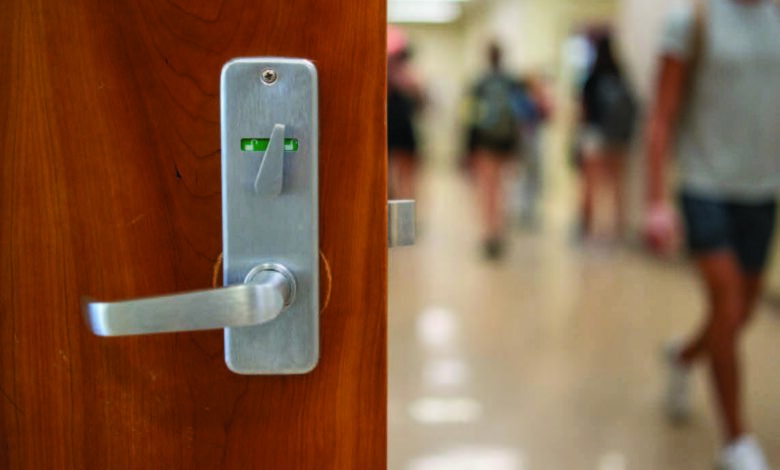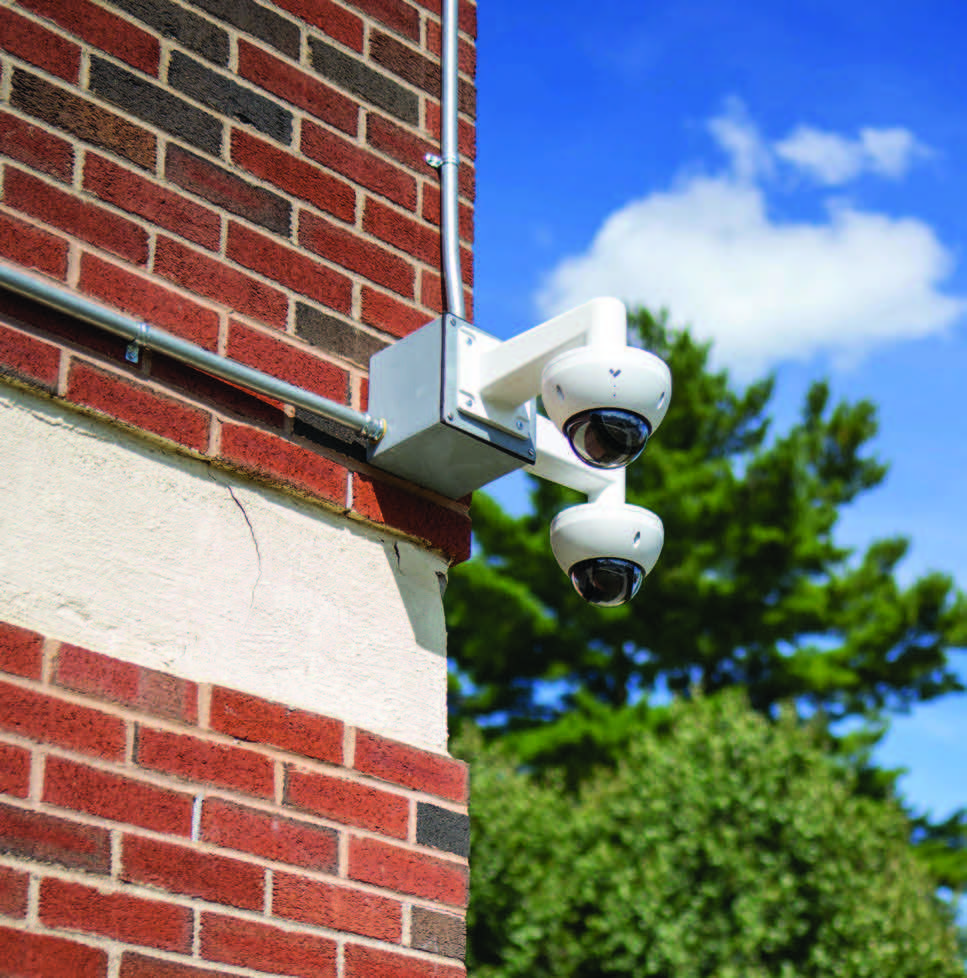
University continues wellness efforts with expanded committee
By Kaitlyn McCormick
After a 52-minute shelter in place shook the campus community last spring, everyone at Rider knew that stronger efforts needed to be made to promote safety and preparedness.
The result? The evolution of the Campus Safety Preparedness Committee. Now, going into the fall 2023 semester, this initiative has evolved to encompass wellness in all forms and avenues, newly named the Community Wellbeing Committee.
Mike Reca, vice president for facilities and university operations as well as a key leader in the committee, said that health and safety initiatives have always existed at the university, but the events of last spring served as a wake-up call.
“It wasn’t until that incident that it really brought to the forefront the more of the safety side of things,” Reca said. “And that’s when [Rider] President [Gregory] Dell’Omo said, ‘Hey, we have to get a cross section of people to give a lot of input to find out where we possibly could be deficient.’”
Inside the committee
The new Community Wellbeing Committee consists of the steering committee from last spring as well as four subgroups: facilities and physical space access, communications and technology, emergency response and training, and community wellbeing.
Former Chief Diversity Officer Barbara Lawrence had chaired the steering committee with Reca before her departure in June.
While not all committee members’ names were disclosed to The Rider News, the grouping consists of an intersection of staff, students and faculty.
“Last spring we had to move fast,” said Reca, explaining that it was important to maintain the attention of community members after the shelter in place to put an emphasis on safety preparedness.
After sifting through information from the subcommittees, Reca said the team came up with a plan by early June and implemented as much as they could over the summer.
Student Government Association President Naa’san Carr was a member of the facility and physical space access subcommittee last spring, along with many other prominent SGA voices.
SGA, Carr said, is just the “centralized voice” of all students on campus.
“We try to get all of the opinions of students and come together and bring all those concerns to committees like this,” he said.
‘It’s horrible that we have to plan for something like this’
Multiple changes and investments have been made to the university to directly address the threat of campus violence and safety following the swatting incident last spring.
Immediately, facilities took inventory of all classrooms and outside doors in every building.
According to Reca, advancing to intruder-proof and heavy-duty locks was an initiative that had started in 2018 with 88 classrooms, but was never finished.
Now, 98% of the classrooms and more exposed meeting rooms on campus are completed, with facilities just waiting on specialized hardware for a few unique doors. Reca said the updates totaled at 76 doors across 60 rooms.
Largely at the request of the SGA, 14 new security cameras were installed since last spring, mostly around the residence halls, and 10-15 more are planned to be added around campus moving forward.
Carr said the focus was adding security to spaces that “might be blindspots for predators to go into.”
Safety training sessions held last spring, which had 511 participants, are also expected to continue. Reca said there are eight sessions planned for the fall and a probable 11 in the spring.

‘This will be a committee of action’
Changes aren’t just being made to equip the community in case of an active shooter.
Reca says that the committee is looking to be prepared for all types of wellness, from threats of violence to extreme weather conditions to Americans with Disabilities Act concerns and everything in between.
“We should be dealing with all the issues,” Reca said.
A key part of this is updating the Rider Alert system, which will be transitioning to a platform called Rave Mobile Safety over the next 4-6 months.
According to Reca, the platform will be easier to work via phone and from anywhere on campus with higher speeds and a broader bandwidth. He described it as “much more functional and nimble.”
Lastly, mental health is becoming a key part of acknowledging wellness on campus.
After the initial problem-solving mode necessary for improving physical aspects of safety on campus, Reca said he realized just how important it is to support mental wellbeing for staff, faculty and students, which is why partnering with the university’s counseling center will be so vital.
“After the [shelter in place], there was an increased amount of people who wanted to talk about it, so we have to be prepared for that,” Reca said.
In addition to leaning on the Rider Counseling Center as a resource for students, Rider’s Human Resources department has an employee assistance program to provide aid to faculty and staff.
Investing in safety and wellness
The laundry list of safety changes made to Rider’s campus didn’t come cheap, but luckily the university was able to pull from outside funding.
According to Reca, the university used $150,000 granted by the Federal Emergency Management Agency during the COVID-19 pandemic to fund the safety improvements.
Reca said that the changes to the doors on campus ranged between $75,000-$80,000, the Rave system cost $20,000-$25,000, new cameras around $40,000-$50,000 including the $25,000 that was contributed by SGA, and other miscellaneous items including preparation for Rider’s first “Care Fair” later this month cost around $5,000.
Allowance for the committee and its initiatives will also be worked into the university budget moving forward, and meetings are expected to take place once a month.
On Sept. 28, Reca is inviting all members of the Rider community to attend the university’s “Care Fair.” The event will take place on the campus mall and allow all members of the university to pop by tables from groups like the counseling center, public safety and Lawrence Township first responders to get a closer look at the versatility of wellness efforts at Rider.
Originally printed in the 9/13/23 issue.


